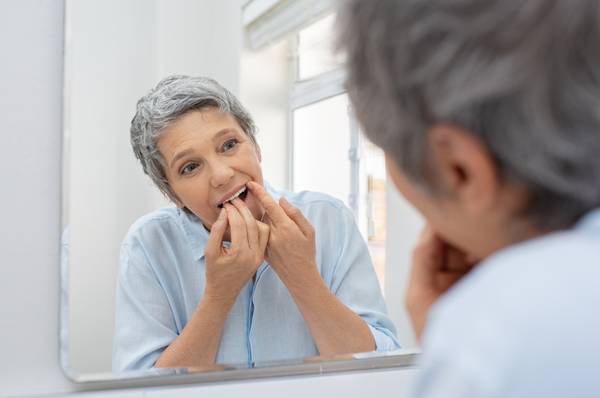Anything with the word "sore" in its name typically isn't fun. And such is the case for canker sores.
Canker sores develop inside the mouth (inside your cheeks or lips, at the base of your gums, on or under your tongue) as small white or gray sores with a red border. You may notice a tingling or burning sensation a day or two before the sores appear. You may get one sore or several.
Yes, they may be painful. But, fear not—they aren't contagious, says the American Dental Association.
Causes
It's uncertain exactly what causes them. Some believe that immune system problems, viruses or bacteria may be involved. Certain toothpastes and mouth rinses may cause them. Food sensitivities may be to blame, particularly to coffee, strawberries, eggs, nuts, cheese, chocolate and acidic or spicy foods. They may also occur because of certain conditions and diseases like celiac disease, inflammatory bowel diseases or HIV/AIDS.
Risk factors
Anyone can get canker sores. But teens and young adults are prone to them. And they're more common in females. People with recurrent canker sores often have a family history of them.
Types
A few types of canker sores exist.
- Minor canker sores are the most common. They're usually small and oval shaped with a red edge. They heal without scarring in one to two weeks.
- Major canker sores are less common. They're larger and deeper than minor ones. They're usually round with a defined border. But, they may have irregular edges when large. They can be painful. They might take up to six weeks to heal and leave scarring.
- Herpetiform canker sores are uncommon. They usually develop later in life. Despite its name, they're not caused by herpes. They're pinpoint sized, have irregular edges and often happen in clusters of 10 to 100 sores but may merge into one large ulcer. They typically heal without scarring in one to two weeks.
Treatment
Canker sores usually heal on their own after one or two weeks. Home treatments include rinsing your mouth with a warm salt water or baking soda rinse and avoiding foods that are spicy, acidic or abrasive, which can irritate the sore. (Learn more about how to avoid canker sore pain.) also There are gels, creams, pastes and liquids. Look for these active ingredients:
- Benzocaine (such as in Anbesol, Kank-A, Orabase and Zilactin-B)
- Hydrogen peroxide (for example, Orajel Antiseptic Mouth Sore Rinse and Peroxyl)
- Fluocinonide (such as in Lidex and Vanos)
When to get help
Contact your health care professional if any of these conditions exist:
- Your canker sore is unusually large.
- You have recurring sores (new ones develop before old ones heal or you get frequent outbreaks).
- The sores are painful, despite treatment measures.
- Sore don't seem to heal, lasting two weeks or more.
- You have high fever with canker sores.
- You have extreme difficulty drinking or eating.
- You have sharp teeth or dental appliances that seem to trigger the sores.
Your health care professional may prescribe a mouth rinse containing a steroid to reduce pain and inflammation or lidocaine for pain management. If topical treatments aren't effective, your HCP may suggest nutritional supplements, such as folate, vitamin B-6 or B-12 or zinc, or may prescribe oral medications. Your HCP also can cauterize sores using an instrument or a chemical substance.







